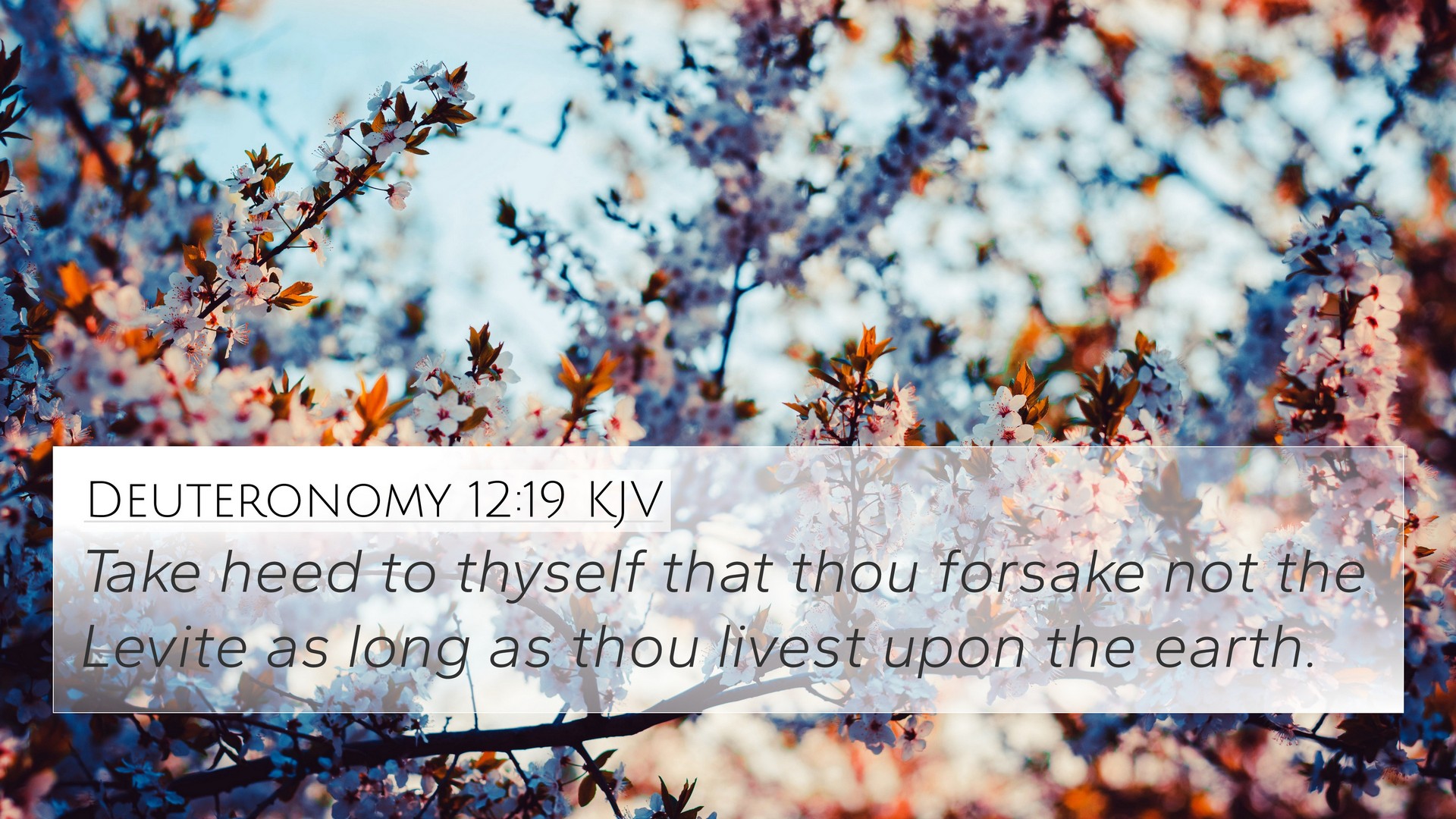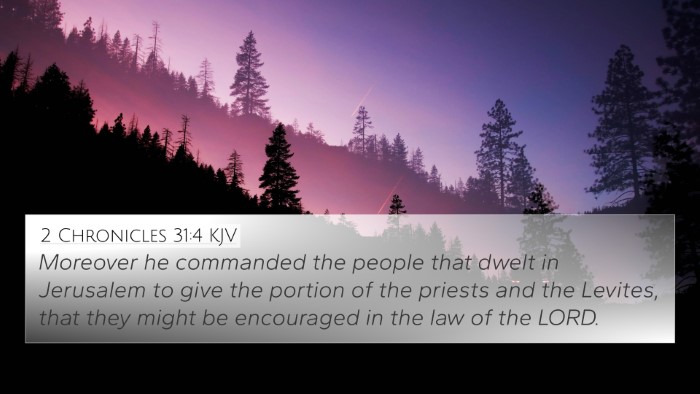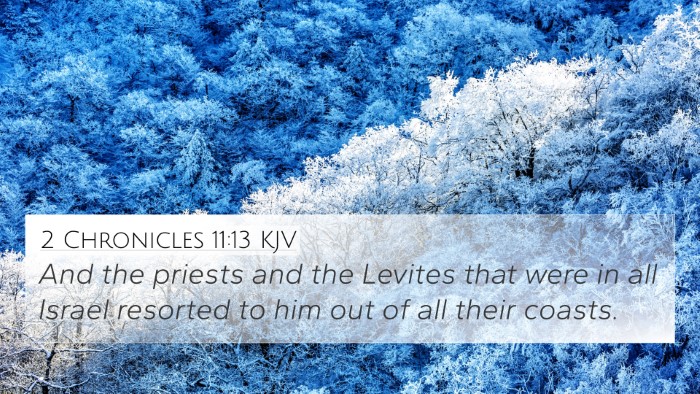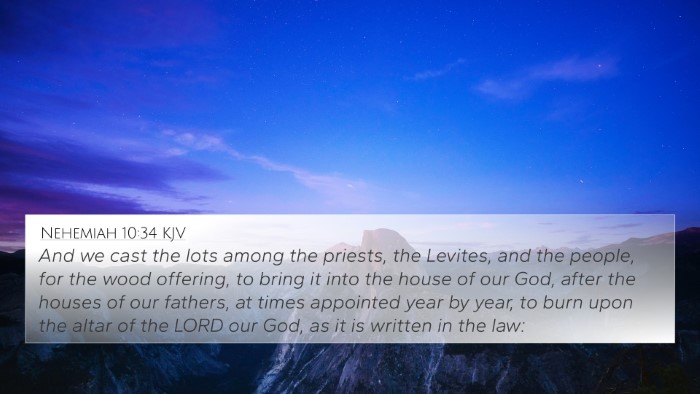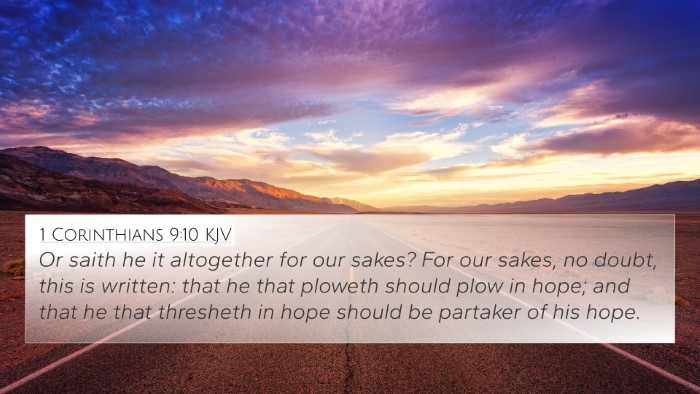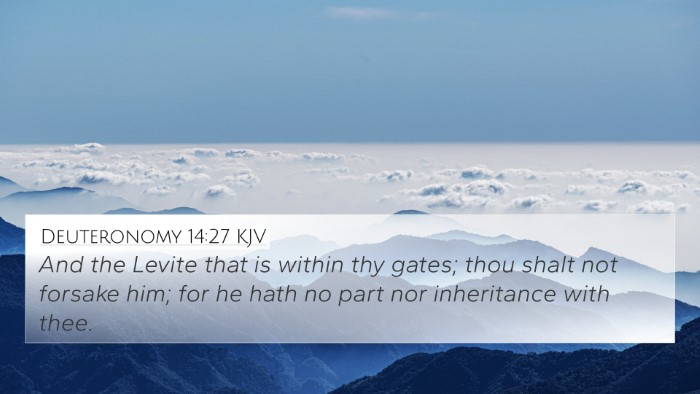Understanding Deuteronomy 12:19
Deuteronomy 12:19 states, "Take heed to thyself that thou forsake not the Levite as long as thou livest upon the earth." This verse is part of Moses' instruction to the Israelites regarding worship, sacrifices, and the role of the Levites in their community. Its emphasis is on the maintenance of support and respect for the Levites who serve as religious leaders and caretakers of the tabernacle.
Contextual Significance
In exploring the meaning of this verse, we draw insights from public domain commentaries:
- Matthew Henry: Highlights the importance of the Levites, noting their role as ministers of God. He emphasizes that neglecting them would lead to a breakdown in spiritual governance and community cohesion.
- Albert Barnes: Points out that the Levites were not granted a land inheritance like other tribes. Thus, their sustenance depended on the people's support, reinforcing the communal obligation to care for their spiritual leaders.
- Adam Clarke: Offers a historical perspective, explaining that the Levites dispersed among the tribes meant they maintained a unique relationship with the entire nation. Clarke emphasizes the Levites' need for support in performing their duties effectively.
Key Themes
This verse encapsulates several significant themes:
- Community Responsibility: The verse serves as a reminder that each member of the community has a role in supporting its leaders.
- Spiritual Leadership: The Levites are depicted as essential conduits of worship and religious instruction, underscoring the importance of valuing spiritual authorities.
- Divine Command: The instruction implies that neglecting the Levites' needs is tantamount to disregarding God's commandments regarding communal worship.
Bible Verse Cross-References
This verse connects to several other passages in the Bible that illuminate its meaning and reinforce its message:
- Numbers 18:20-24: Here, the Lord appoints the Levites to bear the guilt of the people and outlines their sustenance based on the offerings made by the Israelites.
- Deuteronomy 10:9: This passage reiterates that the Levites do not have a share or inheritance like other tribes because they are dedicated to the service of God.
- Malachi 2:4-7: God reminds the people of Levi’s covenant, emphasizing the need for respect and reverence for His ministers.
- 1 Corinthians 9:13-14: The Apostle Paul refers to support for spiritual leaders in the New Testament, confirming the continuity of this theme.
- Hebrews 7:5-9: This section discusses the Levites' receiving tithes, connecting to their role in ministry across covenants.
- Luke 10:7: In sending out the seventy-two, Jesus emphasizes the need to support those who labor in His name—a parallel to the support for Levites.
- Acts 4:34-35: The early church exemplifies the practice of community support, recalling the principles established in the Old Testament.
Thematic Bible Verse Connections
Further understanding of Deuteronomy 12:19 is enriched through thematic connections with the following verses:
- Proverbs 3:9-10: Honoring God with our wealth, which can be seen as a form of supporting spiritual leadership.
- James 1:27: Caring for orphans and widows can be seen as an extension of the principles of support that apply to the Levites.
Conclusion
In conclusion, Deuteronomy 12:19 serves as a vital reminder of communal responsibility towards spiritual leaders, emphasizing the significance of their support and care in the religious life of the community. Understanding this verse in connection with the broader themes in scripture enhances our comprehension of God's design for worship and community.
Further Study and Tools for Cross-Referencing
To delve deeper into cross-referencing Biblical texts, consider utilizing tools such as:
- Comprehensive Bible concordance
- Cross-reference Bible study guides
- Bible chain reference systems for thematic exploration
